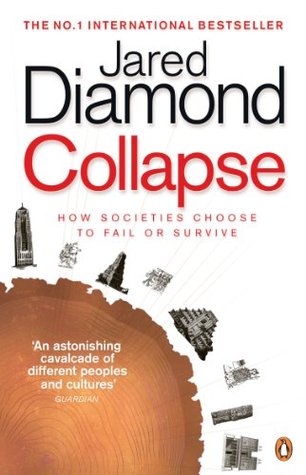More on this book
Community
Kindle Notes & Highlights
Read between
March 17, 2018 - June 9, 2019
Economic considerations now make it difficult for farmers to earn a living at farming, because farm costs have been rising much faster than farm income. The price that a farmer receives for milk and beef today is virtually the same as 20 years ago, but costs of fuel, farm machinery, fertilizers, and other farm necessities are higher. Rick Laible gave me an example: “Fifty years ago,
Yet, as one friend said to me, “Adolf Hitler loved dogs and brushed his teeth, but that doesn’t mean that we should hate dogs and stop brushing our teeth.”
For instance, the value of “one statistical life” in the U.S.—i.e., the cost to the U.S. economy resulting from the death of an average American whom society has gone to the expense of rearing and educating but who dies before a lifetime of contributing to the national economy—is usually estimated at around $5 million. Even if one takes the conservative estimate of annual U.S. deaths due to air pollution as 130,000, then deaths due to air pollution cost us about $650 billion per year. That illustrates why the U.S. Clean Air Act of 1970, although its cleanup measures do cost money, has yielded
...more
The rapid advances in technology during the 20th century have been creating difficult new problems faster than they have been solving old problems: that’s why we’re in the situation in which we now find ourselves.
This dilemma reminds me of Winston Churchill’s response to criticisms of democracy: “It has been said that Democracy is the worst form of government except all those other forms that have been tried from time to time.” In
In a radical remaking of Cambodian society that dwarfed even the remakings of North Korea and Albania and sought to turn back the clock a thousand years to the days of Angkor, cities were evacuated; money, religion, markets, private property, and businesses were abolished; hospitals, schools, and stores were closed; no books or newspapers could be published; and everyone had to wear black clothes, eat in communal kitchens, and be a rice farmer.


